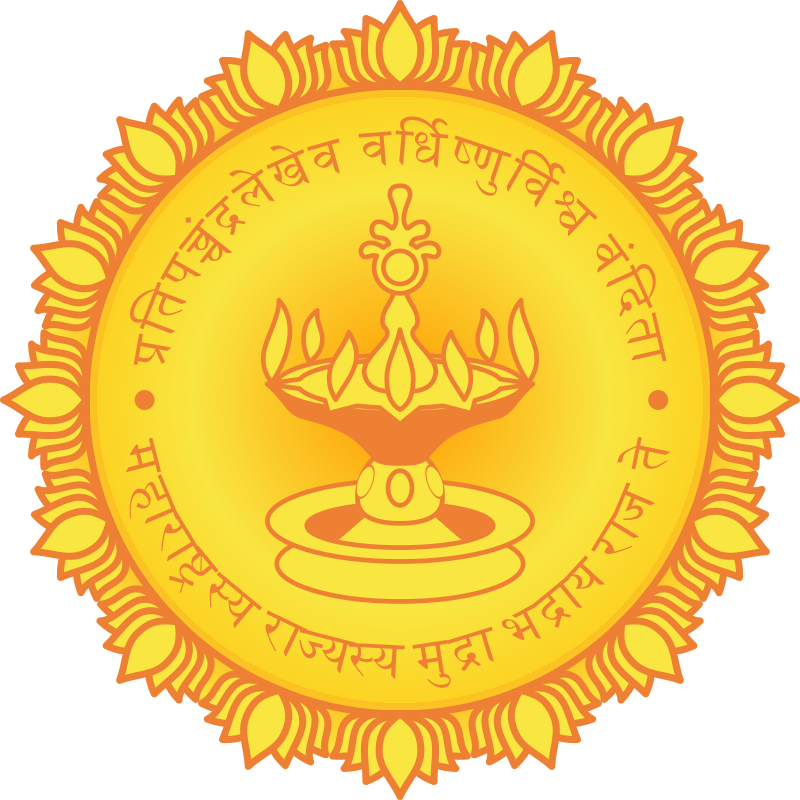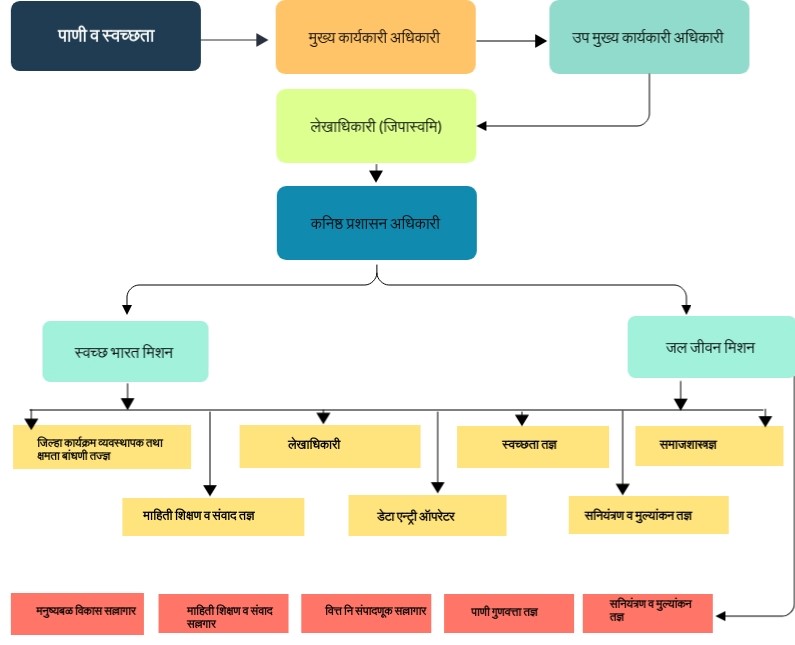About the Department
District Water and Sanitation Mission Cell was established in the year 2012. Under this cell, schemes like personal toilet facilities, public toilets and sewage solid waste management etc. are implemented under Nirmal Bharat Abhiyan and present Swachh Bharat Mission. Individual toilets are constructed under Swachh Bharat Mission (Gramin). Benefits are provided to beneficiaries who have not availed the benefit before, new extended families etc. In this, BPL beneficiaries and small landholders in APL, widows, SCs, STs, disabled etc. are provided Rs. 12000/- as incentive grant from the Central (60 percent) and State (4 percent) Government funds. ( See Government Resolution)
The following are the eligibility criteria for funds based on the population of the village for carrying out solid waste and sewage management works in the villages of Gram Panchayats which have become 100% open defecation free under Swachh Bharat Mission (Gramin):-
|
Sr. No. |
Population as of 2021 |
Solid waste management |
Wastewater management |
|
1 |
Up to 5000 |
Rs.60/- per person |
Rs.280/- per person |
|
2 |
More than 5000 |
Rs.45/- per person |
Rs.660/- per person |
As per Swachh Bharat Abhiyan (Gra) Phase-II, the funds will be actually admissible by deducting the labour required for the annexure (paragraph 15.2.(II) (a) of the Central Government Guidelines in the context of Swachh Bharat Abhiyan (Gra) Phase-II) (15th Finance Commission/MGNREGA/GRAP SWANIDHI/Others). Out of the funds thus calculated (if the total admissibility for the village is less than Rs. 0.50 lakh, then the minimum total admissibility shall be Rs. 0.50 lakh) 70% of the funds will be admissible under Swachh Bharat Abhiyan (Gra) Phase-II (Centre 60% and State 40%) and the remaining 30% of the funds will be admissible from the 15th Finance Commission. The said fund admissibility will be admissible for the public annexure for the population of the village for the year 2021. (As per the instructions given under Central Government Circular No.: S-11015/1/2020-SBM-DDWS, dated 28/05/2020, the population of the year 2021 should be taken as a basis for the fund admissibility for the solid waste and sewage management project. For this, the calculation can be done as per “Form-14”.)
II) Sediment Management:- At the rate of Rs. 230/- per person III) Plastic Waste Management:- Rs. 16 lakhs for one unit in each taluka. IV) Gobardhan:- Rs. 50 lakhs for each district.




